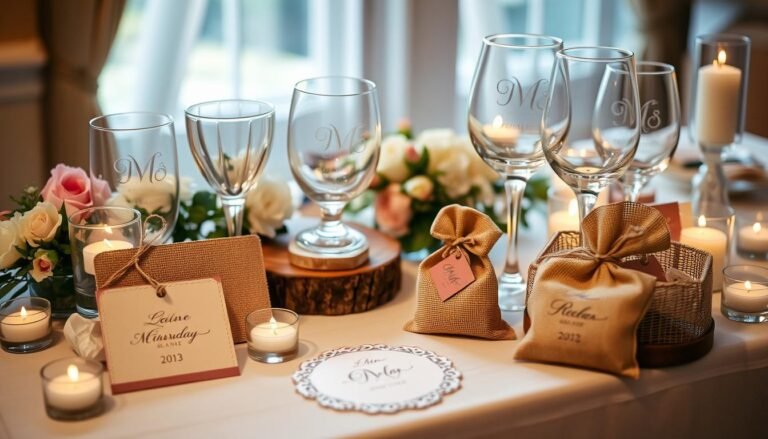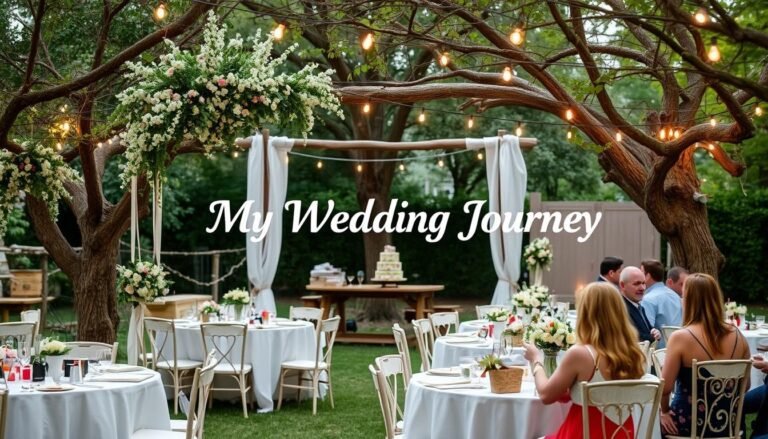Does planning your dream wedding feel like juggling flaming torches while walking a tightrope? You’re not alone. For many couples, the excitement of organizing their big day can quickly spiral into a whirlwind of endless to-do lists, clashing opinions, and unexpected challenges. But here’s the good news: it doesn’t have to be that way.
Wedding planning is like crafting a beautiful mosaic—every little piece has its place, and when approached with a bit of patience and organization, the result is breathtaking. And just like with any creative process, the key to success lies in staying calm, focused, and connected with your partner.
We’ve seen it all as wedding planners—teary meltdowns over seating charts, last-minute vendor cancellations, and even a bride who misplaced her bouquet minutes before the ceremony (spoiler: her maid of honor saved the day with a backup plan). The truth is, wedding planning is a journey, and every couple faces bumps along the way. But with the right strategies, you can transform stress into joy and truly enjoy the process of creating your special day.
In this article, we’re sharing 10 tried-and-true tips to help you stay organized and keep stress at bay while planning your wedding. Whether you’re in the early stages of brainstorming your dream venue or finalizing those last-minute details, these tips will guide you toward a more peaceful and enjoyable experience. Let’s dive in!
Tip #1: Start with a Realistic Timeline
Imagine trying to build a house without a blueprint. That’s what wedding planning feels like without a timeline—it’s chaotic, overwhelming, and leaves you scrambling to figure out what comes next. A well-thought-out timeline is like the GPS for your journey to “I do,” helping you navigate through every milestone with confidence and clarity.
When Emma and Josh first came to us, they were six months away from their wedding date with no plan in place. Their venue wasn’t booked, vendors were up in the air, and they were panicking over how to get everything done in such a short time. Together, we sat down, broke their to-do list into manageable chunks, and created a month-by-month timeline. Within a week, they went from overwhelmed to optimistic, knowing exactly what needed to be done and when.
Here’s how you can create your own wedding planning timeline:
- Break It Down by Months:
Start by looking at how much time you have until your wedding day. For a year-long engagement, divide tasks into 12-month increments. For example:
- 12 months out: Secure your venue and set your budget.
- 6 months out: Finalize your guest list and book major vendors.
- 1 month out: Send out your final headcount to vendors and confirm all details.
- Prioritize the Big Decisions First:
Focus on the critical tasks early on—securing your venue, booking your photographer, and locking in your budget. These decisions often shape the rest of the planning process and can reduce a lot of unnecessary stress later.
- Use Planning Tools:
Whether it’s a wedding planning app, a shared Google Calendar, or an old-school notebook, find a tool that works for you and your partner. A shared calendar is especially helpful for staying on the same page and avoiding miscommunication.
- Build in Buffer Time:
Life happens, and wedding planning rarely goes perfectly according to plan. Add extra time for tasks like dress alterations, late RSVPs, and unforeseen hiccups. This way, you’ll have flexibility to handle surprises without feeling rushed.
- Celebrate Small Wins Along the Way:
Each milestone you hit—whether it’s booking your florist or finding the perfect DJ—is worth celebrating. Treat yourselves to a date night or a relaxing evening off. These little moments will keep you motivated and remind you why you’re planning this beautiful day in the first place.
Pro Tip: If you’re already feeling behind, don’t panic. Start where you are, prioritize the most urgent tasks, and work your way forward. Remember, it’s not about perfection—it’s about progress.
Tip #2: Create and Stick to a Budget
If wedding planning is a puzzle, your budget is the frame—it sets the boundaries and helps you see the bigger picture. But let’s be honest, talking about money can feel awkward or even overwhelming, especially when you’re balancing dreams with reality. The good news? With a thoughtful budget and a little flexibility, you can have the wedding of your dreams without breaking the bank (or your sanity).
Take Sarah and Mike, for example. They initially planned for a lavish rooftop ceremony but quickly realized that their venue would eat up half their budget. Instead of panicking, they re-evaluated their priorities, choosing a smaller garden venue that left room for their dream photographer and a live band. By staying flexible, they created a day that felt uniquely theirs—and stayed on budget.
Here’s how you can do it too:
- Start with the Total Amount You’re Comfortable Spending:
Sit down with your partner and any contributing family members to determine your overall wedding budget. Be clear about who’s covering what to avoid misunderstandings.
- Break It Down by Category:
Allocate your budget into categories such as venue, catering, attire, decor, and entertainment. A general rule of thumb:
- 40% for the venue and catering
- 15% for photography/videography
- 10% for flowers and decor
- 10% for attire
- 10% for entertainment
- 15% for miscellaneous expenses (invitations, transportation, etc.)
- Track Every Expense:
Use a spreadsheet, wedding planning app, or budget tracker to log every expense. This will help you avoid surprises and keep your spending in check.
- Plan for Hidden Costs:
Don’t forget about taxes, gratuities, and unexpected fees (like overtime charges). Set aside at least 5-10% of your budget for these “just in case” moments.
- Prioritize What Matters Most:
Decide what’s most important to you as a couple. Whether it’s a live band, designer attire, or gourmet catering, focus your spending on what will make your wedding feel special and meaningful to you.
Pro Tip: If you’re working with a tighter budget, consider DIY elements or alternatives like weekday weddings, smaller guest lists, or digital invitations.
Tip #3: Delegate Tasks to Trusted Friends and Family
If you’re someone who likes to do it all yourself, let’s make one thing clear: your wedding is not a solo project. Delegating tasks to your support system not only lightens your load but also makes your loved ones feel included in your special day.

When Megan and her fiancé, David, were planning their wedding, Megan insisted on handling everything herself—from designing the invitations to arranging the centerpieces. By the time the rehearsal dinner rolled around, she was so exhausted that she barely enjoyed it. Realizing she needed help, Megan tapped into her bridal party’s skills: her sister handled the playlist, her best friend organized the seating chart, and her mom oversaw the flower arrangements. The result? A stress-free wedding day and a closer bond with her loved ones.
Here’s how you can delegate effectively:
- Know Your Team’s Strengths:
Assign tasks based on your friends’ and family’s skillsets. Have a crafty cousin? Let them help with DIY decor. Is your best friend super-organized? Put them in charge of coordinating RSVPs.
- Be Clear About Expectations:
When delegating, communicate exactly what needs to be done and by when. A quick checklist or phone call can go a long way in avoiding confusion.
- Trust and Let Go:
Once you’ve delegated a task, trust the person to handle it. Focus on the bigger picture instead of micromanaging every detail.
Pro Tip: If you’re worried about burdening others, remember that people want to help—it’s their way of showing love and support.
Tip #4: Schedule Regular “Wedding-Free” Time
Wedding planning can feel all-consuming, but it’s important to carve out moments to reconnect with your partner outside of the planning chaos. Think of it as hitting the “pause button” on the stress to focus on why you’re doing this in the first place—your love and commitment to each other.
Mark and Lisa, one of my favorite couples to work with, had a standing rule during their engagement: every Friday night was “wedding-free.” They’d go for a walk, enjoy a quiet dinner, or binge-watch their favorite shows—no talk of venues, guest lists, or color palettes allowed. These moments helped them recharge and stay grounded as a couple.
Ways to unplug from wedding planning:
- Plan Weekly Date Nights:
Whether it’s a cozy night in or a fun outing, dedicate time to enjoy each other’s company without any wedding talk.
- Take Mini Breaks:
A weekend getaway or even a day trip can do wonders for your mental health.
- Practice Mindfulness Together:
Try activities like yoga, meditation, or even a simple gratitude exercise to stay present and reduce stress.
Pro Tip: Remember, your relationship is the heart of your wedding. Nurturing it during the planning process will make your day even more meaningful.
Tip #5: Focus on One Task at a Time
Wedding planning is not a race—it’s a marathon. Trying to tackle everything at once will only leave you overwhelmed and burnt out. Instead, focus on one task at a time and celebrate small wins along the way.
Amy and John learned this the hard way. When they tried to book vendors, create a seating chart, and finalize the menu all in one week, they found themselves snapping at each other over the smallest details. After taking a step back, they decided to prioritize one task at a time, starting with the photographer. With each completed task, their confidence grew, and planning became manageable again.
How to stay focused:
- Prioritize Your To-Do List:
Rank tasks by importance and deadlines. For example, book your venue before worrying about table numbers.
- Break It Into Smaller Steps:
Instead of saying, “Plan the wedding,” break it into mini-goals like “Research three florists this week” or “Choose a cake flavor by Friday.”
- Celebrate Small Wins:
Reward yourselves for completing major milestones—whether it’s a dinner out or simply a night off.
Tip #6: Communicate Openly with Your Partner
Wedding planning is a team effort, and while it’s tempting to take the reins and handle everything yourself, clear and open communication with your partner is essential. Think of the process as a partnership boot camp—it’s not just about planning your wedding, it’s about practicing collaboration for the life you’re building together.
Take Alex and Mia, for example. Mia had a vision for a cozy, intimate wedding, while Alex dreamed of a big party with a live band. The guest list became a huge point of contention until they sat down and had an honest conversation about their priorities. By listening to each other’s perspectives, they found a compromise: a mid-sized wedding with a live band playing during the reception and an intimate, candlelit ceremony that Mia cherished.
Here’s how you can stay on the same page:
- Schedule Planning Sessions:
Set aside specific times to discuss wedding details. This avoids constant wedding talk and gives you both time to reflect before making decisions. - Divide and Conquer:
Share the responsibilities. If one of you loves music, let them pick the DJ or band. If the other enjoys design, let them focus on decor. Playing to your strengths makes the process smoother. - Practice Active Listening:
Truly hear what your partner is saying without interrupting or dismissing their ideas. This helps you both feel valued and respected. - Use “We” Language:
Instead of saying, “I want this,” try, “How can we make this work?” It frames the conversation as a partnership rather than a debate.
Pro Tip: If you’re struggling to agree on something, take a break and revisit the topic later. Some of the best decisions come after a little time and space to think.
Tip #7: Hire a Wedding Planner or Coordinator
Let’s face it: wedding planning is a full-time job, and for many couples, it’s hard to juggle work, life, and planning all at once. That’s where a wedding planner or day-of coordinator can be a lifesaver. Hiring a professional is like having a personal guide who knows all the shortcuts to your dream day.

When Laura and Ben were planning their outdoor wedding, they quickly realized how much work went into coordinating vendors, managing timelines, and preparing for possible weather issues. Their planner not only helped them find budget-friendly vendors but also created a detailed timeline for the big day. When a sudden rainstorm hit during the ceremony, the planner swooped in with umbrellas and an alternate setup plan, ensuring the day went off without a hitch.
Here’s how a planner or coordinator can help:
- Full-Service Planner:
Perfect for busy couples, a full planner handles everything from vendor selection to day-of coordination. They’ll manage the nitty-gritty details so you can focus on enjoying the experience. - Day-Of Coordinator:
If you’ve already planned most of the wedding but need someone to ensure everything runs smoothly on the day, a coordinator can be your go-to. They’ll handle vendor arrivals, timelines, and any last-minute issues. - Expert Advice:
Planners have connections and insider knowledge that can save you time and money. From negotiating contracts to recommending trusted vendors, they’re your behind-the-scenes superheroes.
Pro Tip: If a full-service planner isn’t in your budget, consider hiring a day-of coordinator. It’s an investment in your peace of mind.
Tip #8: Prepare for the Unexpected
No matter how carefully you plan, surprises are bound to happen. Maybe your florist calls with a last-minute issue, or your outdoor wedding faces an unexpected downpour. The key is to stay flexible and prepared for whatever comes your way.
One of my couples, Rachel and David, experienced this firsthand when their caterer canceled just days before the wedding. While it could have been a disaster, they leaned on their planner’s vendor network and found a replacement within hours. The new caterer even added a special signature cocktail to the menu, which became a guest favorite.
Here’s how you can prepare for the unexpected:
- Build a Buffer into Your Budget:
Set aside 5-10% of your budget for emergencies or last-minute changes. - Create a Wedding Day Emergency Kit:
Include essentials like a sewing kit, stain remover, extra makeup, snacks, and a first-aid kit. - Have a Backup Plan for Outdoor Weddings:
Always have a plan B for bad weather, whether it’s a tent rental or an indoor venue option. - Be Flexible:
Remember that hiccups are part of the journey. Focus on the bigger picture—marrying the love of your life.
Pro Tip: When things go wrong, lean on your support system. Family, friends, and vendors are there to help, so don’t be afraid to ask for assistance.
Tip #9: Focus on Your “Why”
Amid the flurry of color palettes, cake tastings, and vendor contracts, it’s easy to lose sight of what your wedding is really about: celebrating your love and commitment. When you focus on your “why,” the little stresses start to feel less significant.
Abby and Chris are a perfect example. During their reception, their wedding cake collapsed just as it was being wheeled out to the floor. Instead of letting the mishap ruin the night, they laughed it off and hit the dance floor. Guests rallied around them, and the moment turned into a heartfelt reminder that the day wasn’t about perfect details—it was about celebrating their love.
Here’s how to stay grounded:
- Take a Step Back:
When things get overwhelming, remind yourself of the purpose behind all the planning: marrying your best friend. - Keep Perspective:
Small hiccups won’t matter in the long run. Focus on the joy of the day rather than trying to make everything flawless. - Incorporate Personal Touches:
Include elements in your wedding that reflect your love story, like a meaningful song or a nod to how you met.
Pro Tip: Write a letter to your future spouse about why you’re excited to marry them. Read it when the stress feels overwhelming—it’s a powerful reminder of what truly matters.
Tip #10: Celebrate Small Wins Along the Way
Wedding planning is a marathon, not a sprint, and celebrating milestones along the way can keep you motivated and excited for the big day. Don’t wait until the wedding to pop the champagne—celebrate each step you take together.

Jessica and Tom embraced this philosophy during their planning journey. After booking their dream venue, they treated themselves to dinner at the restaurant where they had their first date. When they finalized their guest list, they spent a cozy night with pizza and a movie. These little celebrations reminded them to enjoy the process rather than rushing through it.
Here’s how you can celebrate your wins:
- Mark Major Milestones:
Finished your guest list? Booked your dream photographer? Celebrate with a date night, a bottle of champagne, or even a simple high-five. - Share Your Progress with Loved Ones:
Keep your family and friends in the loop—they’ll cheer you on and celebrate your wins with you. - Treat Yourselves:
Whether it’s a relaxing spa day or a night off from planning, take time to recharge and enjoy each other’s company.
Pro Tip: Make a habit of looking back at how far you’ve come. Reflecting on your progress can be just the motivation you need to tackle the next step.
Final Thoughts
Planning a wedding is a journey filled with joy, challenges, and unforgettable moments. By staying organized, leaning on your support system, and focusing on what truly matters, you can transform the process into a rewarding experience that brings you and your partner closer together.
Remember, it’s not about achieving perfection—it’s about creating a day that reflects your love and the life you’re building together. Embrace the journey, laugh through the mishaps, celebrate your wins, and savor every step of this beautiful chapterand savor the small wins along the way.
So, which of these stress-busting tips will you try first? Share your wedding planning wins or challenges in the comments below, and don’t forget to tag us in your wedding journey using #StressFreeWedding. Let’s make your dream day a reality—together!








